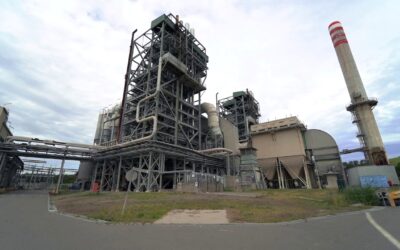A recent Court of Appeal decision has provided clarity as to whether the protection afforded to public authorities by s 43A applied to the issuing of planning certificates by councils pursuant to s 10.7 (previously s 149) of the Environmental Planning and Assessment Act 1979 (NSW).
Background
In 2017, a landowner, Ms Lorenzato commenced proceedings against Burwood Council (“Council“) alleging that Council had negligently misstated in that council failed to include the existence of a pipe that ran underneath the property in a recent Section 149 certificate.
Amongst other defences, Council sought to rely on the protection of s 43A of the Civil Liability Act 2002 (NSW), which applies to proceedings for civil liability in respect to a public or other authority’s exercise of, or failure to exercise, a special statutory power conferred on the authority. A special statutory power is defined as being a power which is conferred by or under statute and is of the kind that a person is not generally authorised to exercise without specific statutory authority.
Section 43A(3) also clarifies that civil liability does not arise with respect to an act or omission involving an exercise of, or failure to exercise, a special statutory power unless the act or omission was in the circumstances so unreasonable that no authority having the special statutory power in question could properly consider the act or omission to be a reasonable exercise of, or failure to exercise, its power.
Supreme Court Proceedings
At first instance, Justice Fagan determined that Council could not rely on the defence contained in s 43A as, by issuing a certificate pursuant to s 149, Council was not exercising a statutory power but rather, a statutorily imposed obligation.
Further, in reference to several decisions in which s 43A was discussed and applied, His Honour held that s 43A only concerned statutory provisions that are discretionary and that, because Council was obligated to issue the certificate, the protection afforded by s 43A could not apply.
Lastly, his Honour held that s 43A could only apply to a claim based on a deliberate act or deliberate refraining from action. As the plaintiff’s case revolved not around the issuing of the planning certificate but rather that the information contained therein was incorrect, his Honour concluded that the s 43A protection could only apply to the issue of the planning certificate itself, not to the provision or withholding of information.
Court of Appeal
Council appealed the decision on a number of issues, including the finding that s 43A did not protect Council from Ms Lorenzato’s claim.
In a unanimous decision, the Court of Appeal held that none of Fagan J’s determinations in respect of the operation of s 43A could be upheld.
Is issuing a planning certificate a special statutory power?
In determining that the issuing of a planning certification under s 149 was a special statutory power, the Court of Appeal referred to s 43A, and noted the following:
- The issuing of a planning certificate is a function conferred only upon a council under the Local Government Act 1993(NSW);
- The contents of a planning certificate are prescribed pursuant to the Environmental Planning and Assessment Regulation 2000 (NSW);
- The issuing of a planning certificate is a power only conferred on Council in reference to the abovementioned statutory instruments and is not a power that persons generally can exercise.
Accordingly, the issue of a planning certificate was a special statutory power for the purposes of s 43A(2).
Discretionary powers only?
In a very short and concise paragraph, the Court of Appeal stated that there was no statement in the decisions referred to by Fagan J that supported his opinion that s 43A only applied to the exercise of a discretionary power, nor was there any basis for inferring that s 43A only applied in such circumstances.
Deliberate?
In response to Fagan J’s comments that s 43A could only apply to a deliberate act or deliberate failure to act, the Court of Appeal was unclear whether Fagan J had considered the omission of information from the planning certificate as not being a deliberate act.
Ultimately, the Court of Appeal held that there was no distinction between deliberateness and inadvertence for the purpose of s 43A because no such distinction is relevant to liability in the tort of negligence.
Appeal Submissions by Respondent
On appeal, Ms Lorenzato argued that Council’s conduct breached the standard imposed by s 43A(3), namely:
For the purposes of any such proceedings, any act or omission involving an exercise of, or failure to exercise, a special statutory power does not give rise to civil liability unless the act or omission was in the circumstances so unreasonable that no authority having the special statutory power in question could properly consider the act or omission to be a reasonable exercise of, or failure to exercise, its power.
The Court of Appeal rejected that submission on the following basis:
- Whilst Council’s engineering department was aware of the existence of the pipe, the property department responsible for issuing planning certificates did not.
- In issuing the planning certificate, Council had conducted the types of inquiries and investigations that are ordinarily conducted in such circumstances.
- Those inquiries and investigations were in accordance with the general approach taken by other councils.
- Whilst the existence of the pipe could have been disclosed pursuant to s 149(5), there was no obligation on Council to do so.
- The general approach taken by councils was that the information to be included in planning certificates did not require reference to individual items of stormwater drainage (or other infrastructure, such as utilities) commonly found on land.
- Ms Lorenzato failed to prove that no council could properly consider the failure to refer to the existence of the pipe to be reasonable in the circumstances.
- There was no specific evidence to which the Court’s attention was drawn which supported the proposition that the statements in the planning certificate were in breach of the standard imposed by s 43A(3).
Conclusion
The Court of Appeal held that there was nothing in the Supreme Court judgment which provided any basis for concluding that the issue of the planning certificate did not engage s 43A and thus, Council could be afforded protection under s 43A if Council had been negligent.
The full decision can be read here: Della Franca v Lorenzato; Burwood Council v Lorenzato [2021] NSWCA 321


